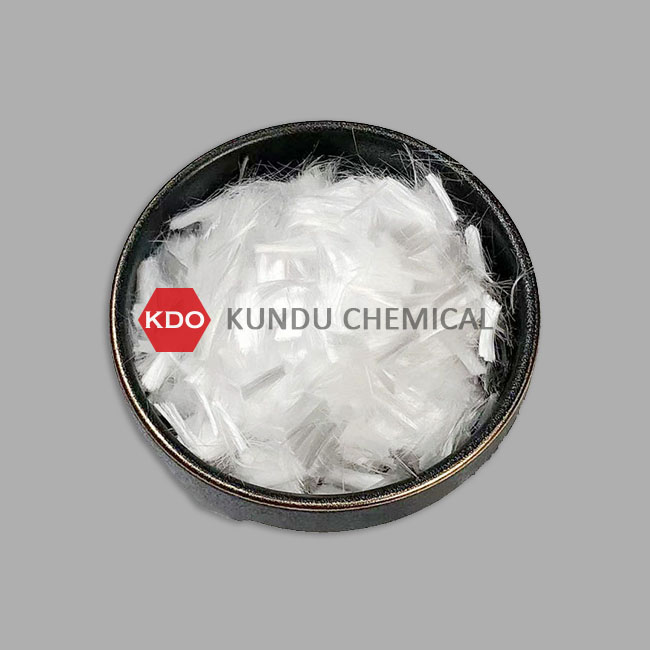- Time:2023/8/21Posted:SHANDONG KUNDU CHEMICAL CO.,LTD.
In the realm of modern construction and engineering, innovation consistently paves the way for materials and techniques that redefine the capabilities of structures. One such innovation that has captured the attention of professionals across the industry is the utilization of Polypropylene Fiber. These synthetic fibers, known for their exceptional strength and versatility, have found a myriad of applications within various fields. This article aims to explore the diverse applications and the host of advantages that come with incorporating Polypropylene Fiber.
Exploring the Vast Applications of Polypropylene Fiber
1. Concrete Reinforcement
The use of Polypropylene Fiber in concrete is perhaps one of the most well-known applications. These fibers are introduced into the concrete mix to enhance its overall performance. Polypropylene Fiber effectively control cracking, reduce plastic shrinkage, and improve the concrete's ductility and flexural strength. This makes them an invaluable addition to concrete used in pavements, bridges, tunnels, and even precast elements.
2. Shotcrete and Gunite
Polypropylene Fiber find extensive use in shotcrete and gunite applications, which involve spraying concrete onto surfaces at high velocities. These fibers improve the cohesion and bonding of the sprayed concrete, resulting in a more durable and crack-resistant surface. Such applications are widely seen in the construction of swimming pools, retaining walls, and underground structures.
3. Mortar Enhancement
Polypropylene Fiber are also integrated into mortar mixes to enhance their properties. Mortars containing these fibers exhibit improved crack resistance, reduced water absorption, and enhanced durability. This is particularly valuable in applications such as masonry, plastering, and tile adhesives.
4. Asphalt Reinforcement
In the domain of road construction, Polypropylene Fiber play a role in reinforcing asphalt mixtures. These fibers aid in reducing cracking, rutting, and fatigue, thereby enhancing the longevity and performance of road surfaces. The result is a smoother and more durable road that requires less frequent maintenance.
5. Soil Stabilization
Polypropylene Fiber find applications beyond traditional construction materials. They are utilized for soil stabilization purposes, where they help control soil erosion, increase soil cohesion, and enhance load-bearing capacity. This makes them suitable for embankments, slopes, and areas prone to erosion.
6. Fiber-Reinforced Plastics (FRP)
Polypropylene Fiber are also employed in the manufacturing of fiber-reinforced plastics (FRP). These plastics are used to create lightweight, corrosion-resistant, and high-strength products for industries ranging from automotive to aerospace. The fibers contribute to the material's mechanical properties and impact resistance.

The Abundance of Advantages Offered by Polypropylene Fiber
1. Enhanced Durability
PP fibers significantly improve the durability of materials they are incorporated into. Whether it's concrete, mortar, or asphalt, the fibers enhance the material's resistance to cracking, impact, and wear and tear. This leads to structures and surfaces that can withstand the test of time and various environmental conditions.
2. Crack Control
One of the standout advantages of Polypropylene Fiber is their ability to control and mitigate cracks. By dispersing evenly throughout the material, these fibers help limit the propagation of cracks, maintaining the integrity of the structure and preventing the need for extensive repairs.
3. Reduced Maintenance Costs
The incorporation of Polypropylene Fiber ultimately translates into reduced maintenance costs. Structures and surfaces reinforced with these fibers require fewer repairs and touch-ups over time, leading to considerable savings in maintenance expenses.
4. Improved Workability
Polypropylene Fiber enhance the workability of materials like concrete and mortar during the mixing and placing stages. They improve cohesion, reduce segregation, and make the material easier to handle, ensuring a more consistent and uniform end product.
5. Flexibility and Versatility
The versatility of Polypropylene Fiber allows them to be seamlessly integrated into various materials and applications. Their adaptability makes them a go-to choice for professionals seeking to enhance the performance of diverse construction elements.
6. Environmental Benefits
Polypropylene Fiber contribute to sustainability by enhancing the lifespan of structures and reducing the need for frequent replacements. This leads to a decrease in resource consumption and waste generation associated with construction and maintenance activities.
Conclusion
The applications and advantages of Polypropylene Fiber in modern construction and engineering are both vast and remarkable. From enhancing the durability of concrete to reinforcing asphalt, stabilizing soil, and contributing to advanced materials, these fibers have proven their worth across diverse domains. As innovation continues to drive the construction industry forward, Polypropylene Fiber stand as a testament to the power of combining science and engineering to create structures that are stronger, more resilient, and longer-lasting.
To delve deeper into the world of Polypropylene Fiber, visit [https://www.kdochem.com/contact-us.html]





